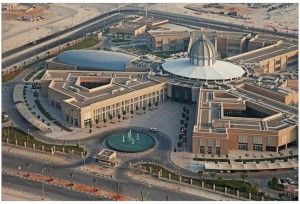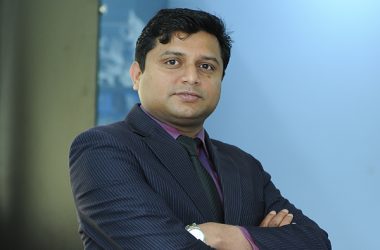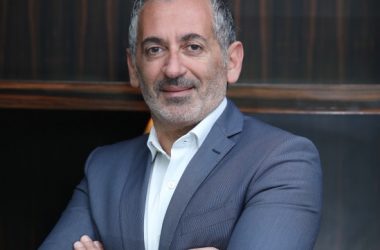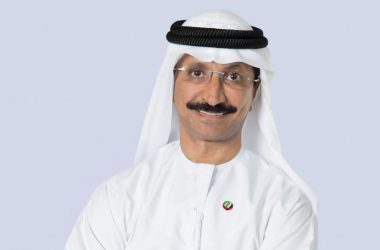 In such a relatively young nation, it is difficult to imagine what the campus of a 750 year old university might look like. Far from the ancient halls and theatre-inspired classrooms of its namesake, Paris-Sorbonne University of Abu Dhabi still manages to maintain a classically French atmosphere to its campus.
In such a relatively young nation, it is difficult to imagine what the campus of a 750 year old university might look like. Far from the ancient halls and theatre-inspired classrooms of its namesake, Paris-Sorbonne University of Abu Dhabi still manages to maintain a classically French atmosphere to its campus.
The campus, located on Al Reem Island, is part of the Emirates’ plan to make Abu Dhabi a premiere higher learning destination. Since the University’s opening in 2006, and the campus ribbon cutting in 2009, Paris-Sorbonne Abu Dhabi has been doing just that.
The University’s tagline, “A Bridge Between Civilizations,” is made apparent in its main entrance hall. The exterior of the building is inspired by the mother campus’ iconic dome, whereas the interior of the dome is made to look like the dhow sails of old Arabia. The connection between cultures is not limited to the architecture. Paris-Sorbonne Abu Dhabi caters to over 700 students hailing from 65 different nations. A quick walk through the campus, established in 2009, highlights the melting pot of cultures, as students socialise using French, English, Arabic and a variety of other languages interchangeably.
Paris-Sorbonne Abu Dhabi is the only international campus of the ancient university, and with that honour, comes a responsibility to do justice to the respected brand. As such, almost 80 percent of its faculty fly in from Paris regularly to teach. All undergraduate classes, with the exception of the new physics course, are taught in French and all final exams must be marked at the Paris-Sorbonne campus in France. The charge is not a small one – to provide everything that the Paris campus does while meeting the needs of a student population that resides in the UAE. In addition, Paris-Sorbonne pulls its academic programmes from not one, but three universities in France, and is ultimately governed by the Abu Dhabi Education Council (ADEC). In all, there are a number of entities to keep satisfied all while serving the increasingly demanding and expanding student community.
“The UAE is a service-oriented society,” says Muhammed Javeed, Head of IT, Paris-Sorbonne University, “students expect a certain level of service and access to information.” To that end, when Javeed came on the scene shortly after the completion of the campus, he knew he had a tall order in front of him. Maintaining a classic French flavour while providing the services of a modern, Arab campus all within the context of a French working culture was not going to be easy.
“I began with the low-hanging fruit, as they say,” says Javeed, “The university had already implemented an Oracle ERP system, but few people were using it.” Javeed began the transformation of the campus’ IT infrastructure with a change management project. He knew that the Oracle system was good, and could save end-users time and tedium, but the difficult part was convincing them of that fact. The Oracle project was begun by ADEC in 2010 whereby the authority deployed the Oracle Fusion Middleware suite of applications including ERP and Identity Management across a number of national institutions.
He found that convincing people to abandon legacy systems that weren’t serving them as well as a new system could was all about making the reasoning personal. “I would say, ‘Think about how your father was doing things 20 years ago, it isn’t the same way you are doing things now.’ The point is, we have to change and modernise.” He found, as well, that convincing users to change to a new system is something best done slowly. “If I can get 40 percent of end-users to switch to a new system in the first year, I consider that a success,” he says, “In total I can only really expect around 80 percent to transfer to a new system. A rate of 100 percent is just unrealistic. There will always be those that are resistant to change.” The key, he says, is to show them how much time they could be saving by abandoning old, or even manual systems, and opting for automated alternatives instead. The Oracle ERP system streamlined systems for HR, payroll, finance and other administrative processes.
After the Oracle ERP rollout, Javeed turned to the immediate needs of the students. With hundreds of students taking advantage of five-star residential facilities, Paris-Sorbonne needed to provide each and every one of them with an environment conducive to both study and recreation. “We first equipped the residence halls with WiFi, so that students could remain connected throughout the facility. Then, rather than installing televisions in every room, we provided students with streaming, online television services,” explains Javeed. Paris-Sorbonne was able to provide these services using a Cisco IP TV solution. Though watching television on one’s laptop may cut down on ambient noise, there are a few programmes – for instance sports matches – that need to be consumed as a group. “For community viewing, we installed televisions in the common rooms.”
However, students need more than high-speed Internet and streaming television. Paris-Sorbonne wanted to create a portal where students could take care of their administrative needs as well as access educational resources. To that end Paris-Sorbonne took on what is called the Talaki Digital Campus Project built on SunGard Higher Education’s Banner Digital Campus. With this tool, the campus administration has been able to increase enrolment growth and provide access to student services. “One of the issues that we faced was the disparate systems between the campus in Paris and the campus in Abu Dhabi,” explains Javeed. “In Paris, the university does not take on tuition fees, so there was no such thing as accounts payable.” Thus this was not simply a task of digitising existing systems, but also creating new systems that were to be unique to Paris-Sorbonne Abu Dhabi.
With the new system, students are able to pay their fees online, and administrative work across all campuses are consolidated. “Students can apply online now, and our recruiters can even use tablets to help students fill out enrolment applications,” says Javeed. With a new, streamlined system, the university was able to identify and collect on outstanding payments, and rid records of redundant information.
This digitised campus may be far from the old classrooms of the Sorbonne of old, but the education provided at Paris-Sorbonne Abu Dhabi is just as quality as its home campus. Javeed realises, however, that progress stops for no one. “We are looking into new ways to leverage technology to support students,” says Javeed, “In the near future, we are hoping to roll out a global classroom experience – a way for students in Abu Dhabi to be able to collaborate in real time with students in France.”
From France to the UAE, Paris-Sorbonne Abu Dhabi has very much lived up to its mission of being a bridge between cultures. Building that bridge has relied, in large part, on new technological advances rolled out with patience and forethought. As Paris-Sorbonne Abu Dhabi progresses, it is committed to maintaining its connection to the culture and educational system of France. No matter how modern this smart campus becomes, it will always have that signature “De vrai béauté.”





